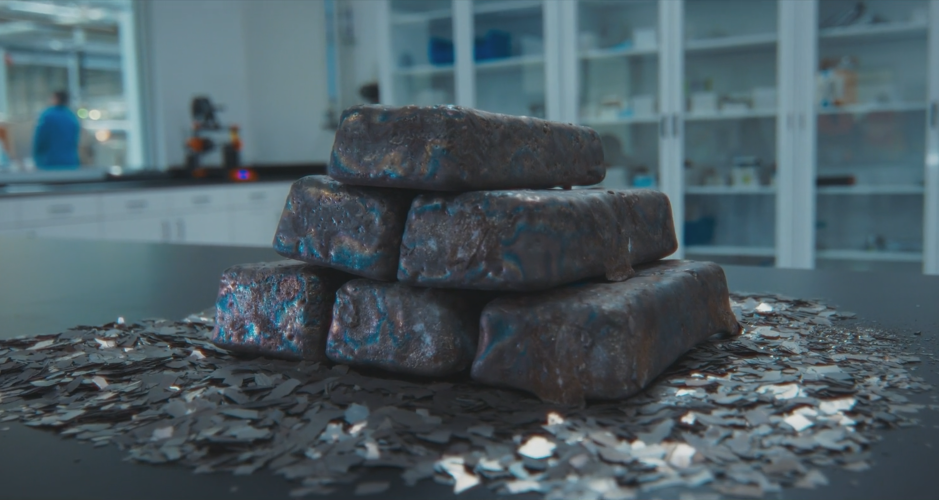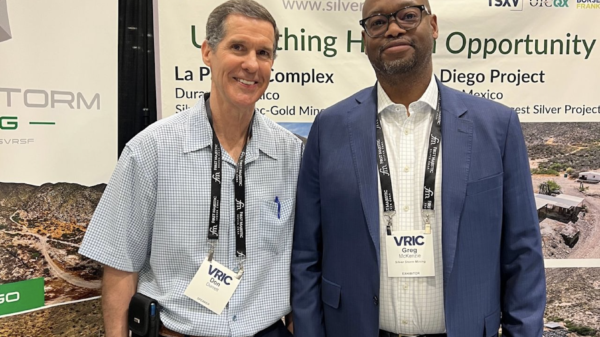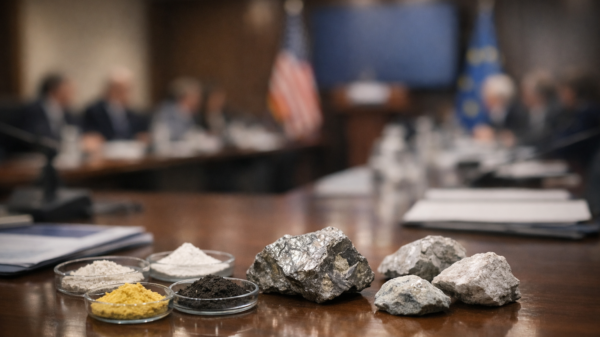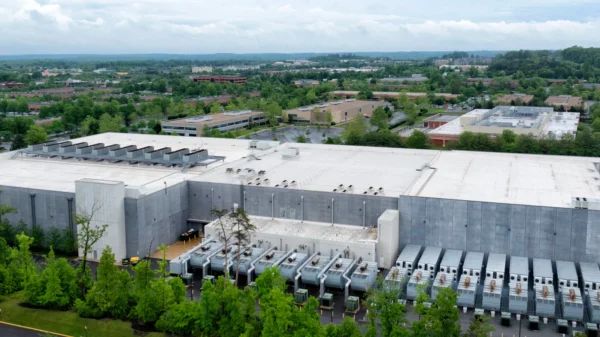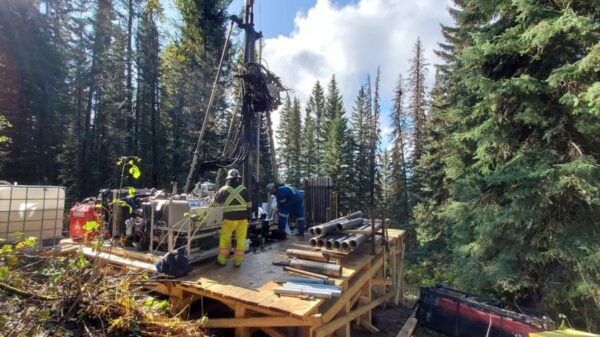MP Materials (NYSE: MP) and the US Department of Defense (DoD) have entered into a private-public partnership worth billions to build a domestic supply chain for rare earth magnets.
The company said on Thursday that the deal will make the DoD MP Materials largest shareholder after picking up $400 million in preferred stock. The investment comes as part of a wider investment package with the federal government.
Shares in the Nevada-based firm surged over 53 per cent in premarket trading in New York, climbing to USD$46 each. They later traded at USD$47. This rally pushed the company’s market capitalization to nearly USD$7.2 billion. Also, the strong investor response highlights growing confidence in the firm’s outlook.
MP Materials plans to build a second magnet manufacturing plant at a yet-to-be-named site. The company has dubbed the new plant the “10X Facility.” It expects to begin commissioning in 2028. The facility will raise total magnet production capacity to an estimated 10,000 tonnes annually.
Additionally, the company will upgrade its Mountain Pass mine in California with heavy rare earth separation capabilities. This move will further strengthen the mine’s role as a national strategic asset. The site already combines extraction, separation, and refining operations in one integrated location.
“This initiative marks a decisive action by the Trump administration to accelerate American supply chain independence,” said James Litinsky, MP Materials’ founder and chief executive.
The strategic agreement comes amid growing urgency to build a US-based mine-to-magnet supply chain. China’s April decision to restrict rare earth exports exposed key American vulnerabilities. It also intensified calls in Washington for a more resilient industrial base.
Read more: NevGold’s latest drill results extend priority target at Limo Butte by over 200 metres
Read more: NevGold’s latest Nevada drill results show exceptional gold mineralization
Prices outside China have surged three to five times
MP said the partnership will accelerate domestic production and strengthen supply chain security. Further, it aims to support dual-use technologies across both defense and commercial markets.
The agreement includes several key commitments. The Department of Defense signed a 10-year off-take deal that sets a price floor of $110 per kilogram for neodymium-praseodymium (NdPr) materials.
In addition, analysts at Benchmark Mineral Intelligence said the price floor guarantees stable revenue for MP and sends a strong signal across the sector. Prices outside China have surged three to five times since the export controls began.
However, this move could help normalize the split in global pricing. It may also support the development of a rare earth price index outside China, according to BMI rare earths research manager Neha Mukherjee.
The deal ensures that buyers will purchase 100 per cent of the magnets produced at the 10X Facility for ten years after commissioning.
The defence and EV sectors are likely to gain from this agreement. The US currently holds the top spot for global defence magnet demand, which could climb to 5,000 tonnes by 2028.
Meanwhile, the US ranks third in EV magnet demand, trailing only China. By 2030, its e-mobility magnet demand may rise to 145,000 tonnes.
“The MP–DoD deal isn’t just a one-off. It’s a template for industrial policy, a national security investment, and a clear signal: the West is finally serious about rare earth resilience,” said Mukherjee.
Read more: NevGold pulls up even more promising antimony grades from Nevada property
Read more: NevGold’s Nevada property may just be the next American antimony resource of scale
DoD will buy new series of convertible preferred stock
To fund construction of the 10X Facility, MP secured a USD$1 billion commitment from JPMorgan Chase and Goldman Sachs, pending standard terms.
In the near future, the company expects a USD$150 million loan from the Department of Defense to support the Mountain Pass expansion. The DoD also agreed to purchase a new series of convertible preferred stock.
At the same time, it will receive a warrant to buy additional common shares at an initial price of $30.03 each. The deal is expected to close on July 11, 2025. Once exercised and converted, the DoD would hold roughly 15 per cent of MP Materials’ outstanding common shares.
Notably, the Adamas Intelligence research team views the agreement as a win for the rare earth industry outside China. They believe it could lead to broader adoption of price floors for key rare earths.
As a result, tariff regimes may follow to stabilize global markets. Although higher prices could push some buyers to seek substitutes, Adamas sees an upside.
Specifically, this shift may benefit vital sectors such as robotics, aerospace, and defence. By securing supply for these industries, the agreement addresses global availability concerns.
MP currently operates the world’s second-largest rare earth mine at Mountain Pass, which began producing in 2017. Refining operations launched in 2023.
The company also plans to start supplying rare-earth magnets to General Motors (NYSE: GM) by year-end. It is also commissioning a new magnetics facility in Texas, called Independence, to support its downstream expansion.
Read more: NevGold closes its Nutmeg Mountain acquisition with Goldmining for $3 million
Read more: NevGold’s long intervals of antimony & gold mineralization turn heads
US firms resorting to sneaky shipping tactics
The United States has taken multiple steps to reduce its dependence on China for critical minerals like antimony. One lesser-known strategy involves routing shipments through third countries to obscure the materials’ origins.
This approach adds complexity but helps U.S. companies avoid direct ties to Chinese suppliers. Additionally, by leveraging foreign separation facilities, U.S. firms can insert a layer between the source country and the final U.S. buyer, creating political and logistical buffers.
Another key initiative is the FAST-41 program, which accelerates permitting for high-impact infrastructure projects, including domestic mining.
Perpetua Resources Corp (TSE: PPTA) (NASDAQ: PPTA), for instance, is advancing the Stibnite Gold Project in Idaho, one of the few sites in the U.S. expected to produce antimony as a primary mineral. Backed by Department of Defense funding, Perpetua represents a cornerstone in reshoring strategic materials vital for ammunition and energy storage.
Meanwhile, some junior mining companies are shifting focus from traditional metals to antimony in response to evolving geopolitical priorities. NevGold Corp (CVE: NAU) (OTCMKTS: NAUFF) (FRA: 5E50) historically centered on gold exploration in Nevada and British Columbia, has signaled interest in diversifying into critical minerals. Its experience with permitting and exploration makes it a viable partner for future government-backed antimony development.
Another company, such as United States Antimony Corp (NYSEAMERICAN: UAMY), has already pivoted more aggressively. With operations in Montana and sourcing from Mexico, USAC provides a near-term supply option.
.
NevGold Corp is a sponsor of Mugglehead news coverage
.

